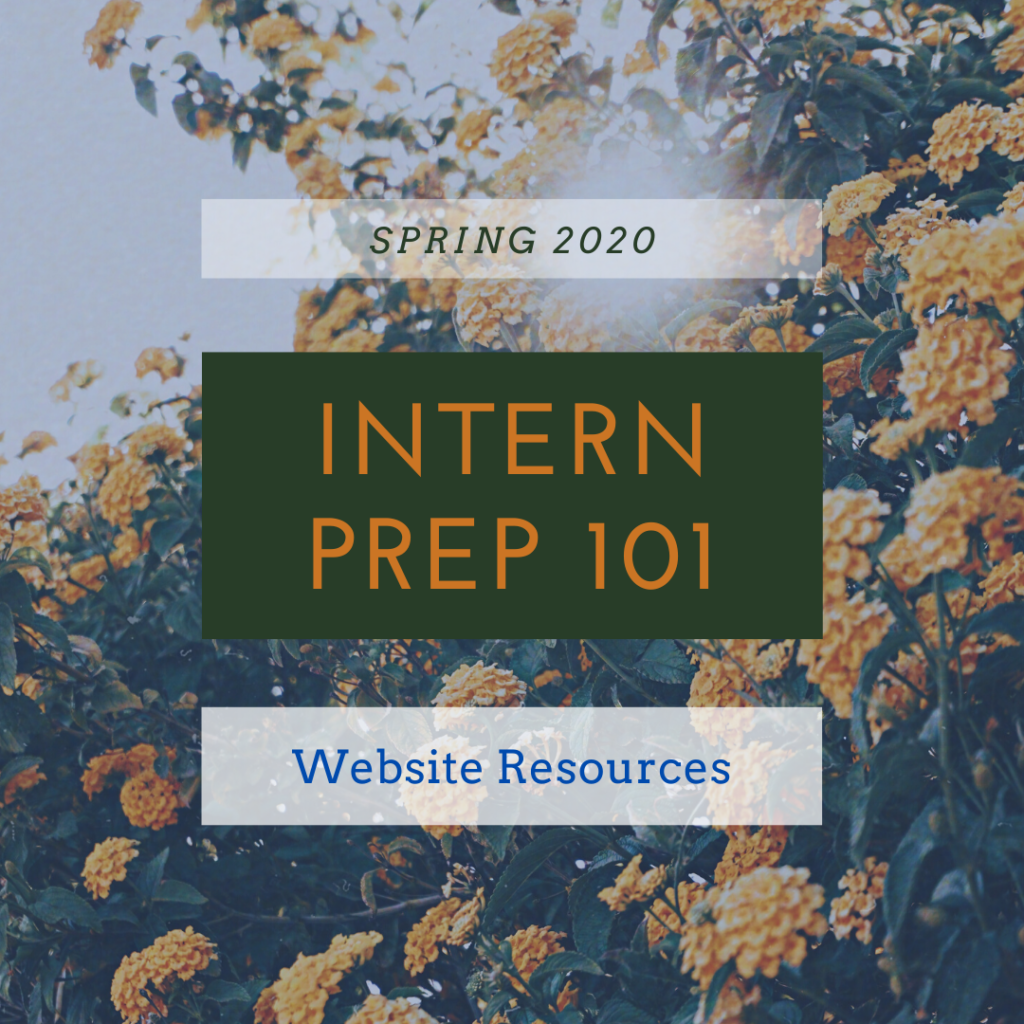
Preparation in the Spring of COVID19? Yeah, sounds scary to us, too. Our graduation didn’t get cancelled. We weren’t being volunTOLD into working in hospitals that didn’t have PPE for their own staff. There wasn’t a pandemic when we started residency.
Yet many of you are still so eager to leap into the fray, while also being terrified of the near future. We wanted to give you a bit of guidance, so you’re not uselessly spinning your wheels.
What NOT to do?
Don’t re-read First Aid or any of your board prep books. Please don’t.
Resources to Consider
- NEJM Resident 360 ($79)
- OnlineMedEd BootCamp ($149) and free COVID Crash Course
- ALiEM’s Bridge to EM (free+$195) or free+$60
4/10/2020 – My recommendations have changed based on cost changes. See the bright blue and green boxes below for the details, but I would now recommend you all do a combination of the OME crash course AND ALiEM if you’re going to be inpatient, ED or ICU in the first three months of residency. If not, go with NEJM resident.
NEJM Resident 360
This service from NEJM can be paid for by a subscription to Journal Watch ($79 per year) and may even be provided by your residency program. They have rotation-specific guides (and currently are offering crit care for free), with detailed dives into subjects appropriate for each rotation. It is geared towards internal medicine residents, but they finally added pediatrics information, making it useful for family medicine and emergency medicine, too. See the gallery below to get an idea of the content, click here to visit NEJM Resident 360 site. I would recommend this website based on cost, breadth of topics covered and overall usefulness.
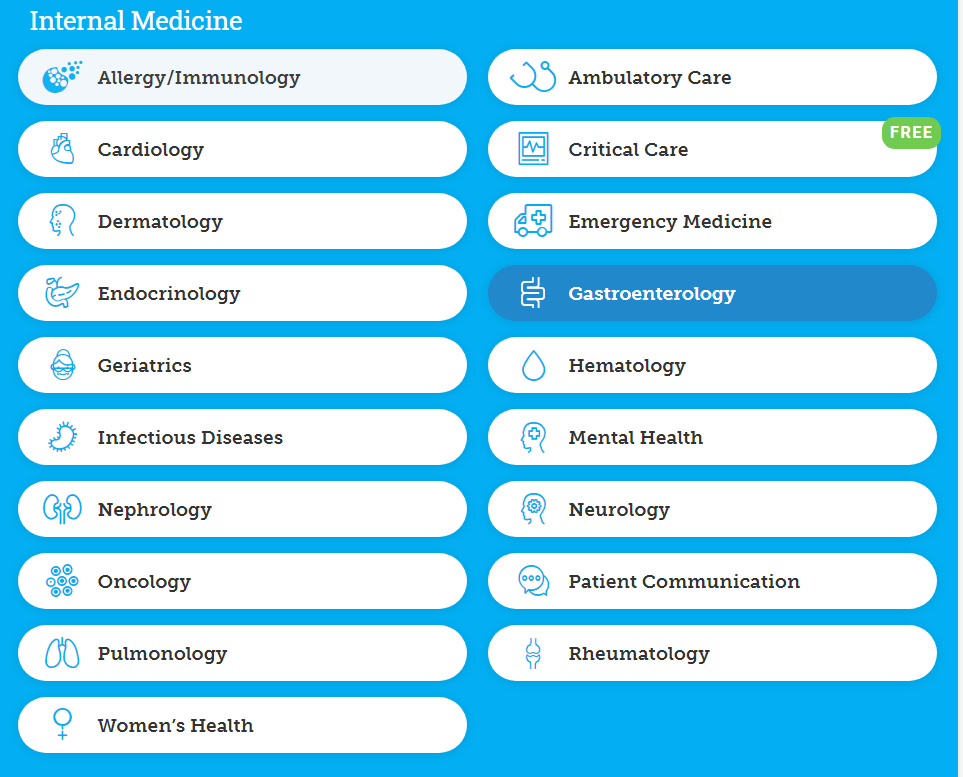
NEJM 360 – Rotation List 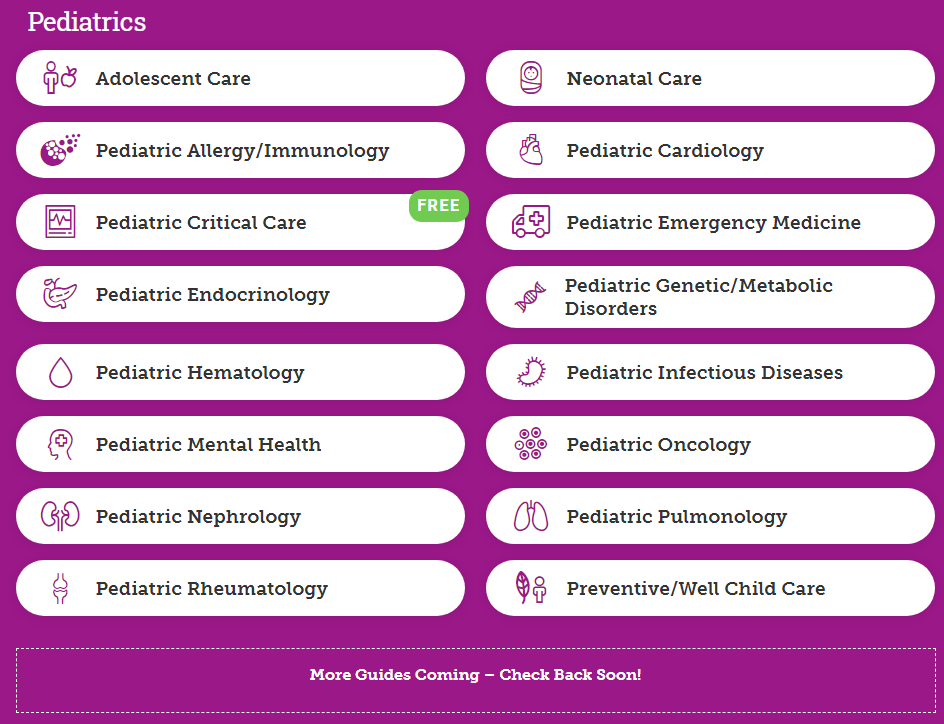
NEJM 360 – Pediatrics Rotation List 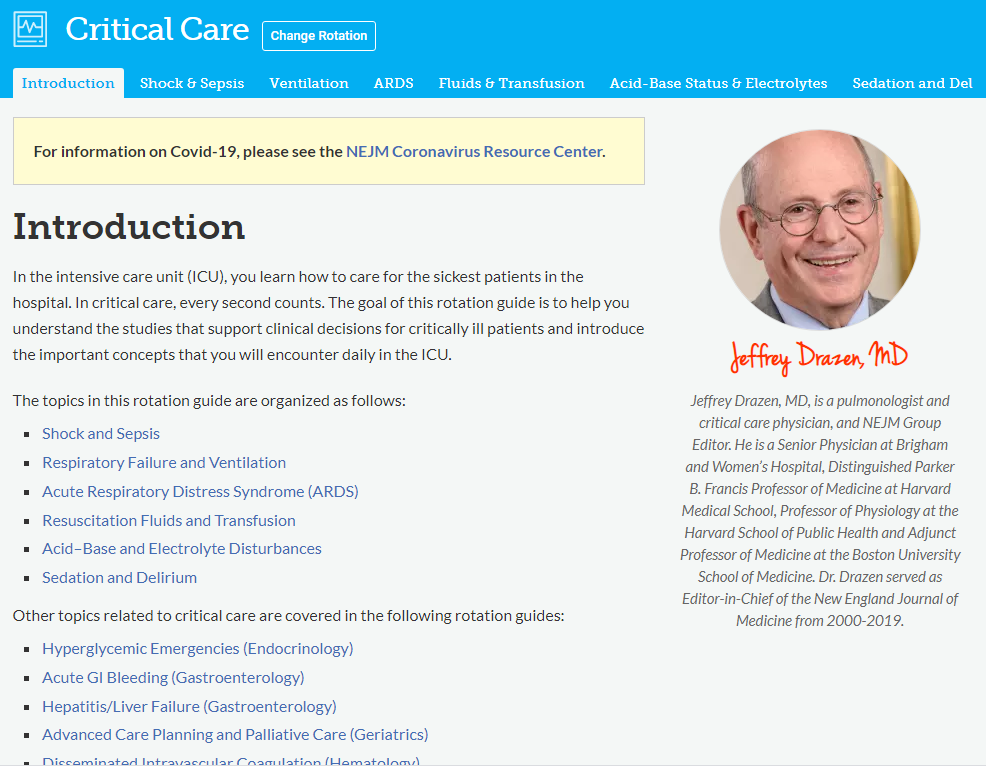
NEJM 360 – Critical Care Rotation 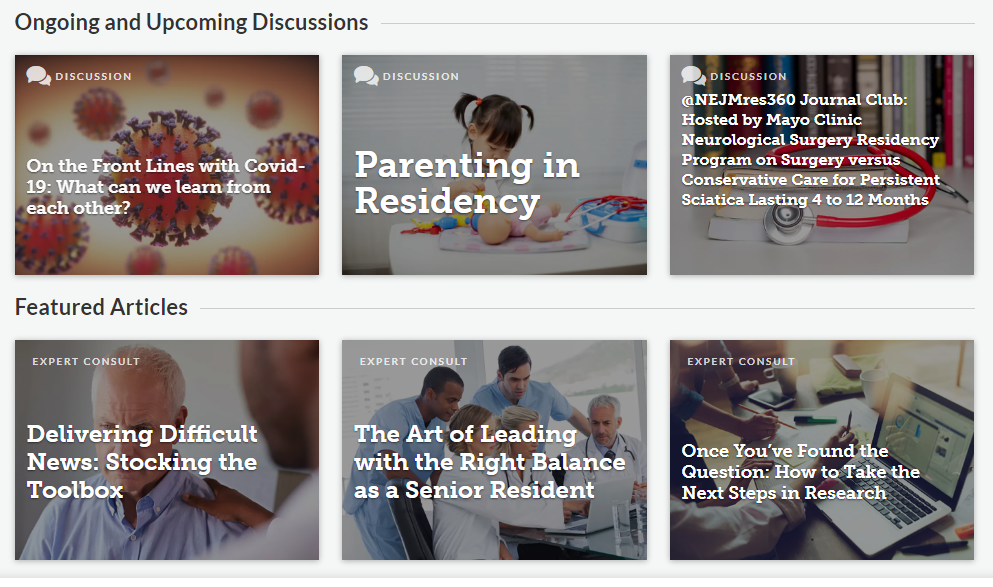
NEJM 360 – Crit Care Discussions 
NEJM 360 – Learning Lab 
NEJM 360 – Resident Lounge
Online Med Ed’s Intern Bootcamp
A more expensive offering, but if you’ve lived with OME through medical school they’re a dear friend. As an intern I got the $49 intern guide, but it was loaned out the next year to other residents and med students and never made it home to me. The bootcamp is $149 (for life, onetime fee for all future access) and has videos to go with what’s in the book. You can also sign up for a version that’s $250 and includes CaseX videos, teaching you in a way that mimics learning on the floor.
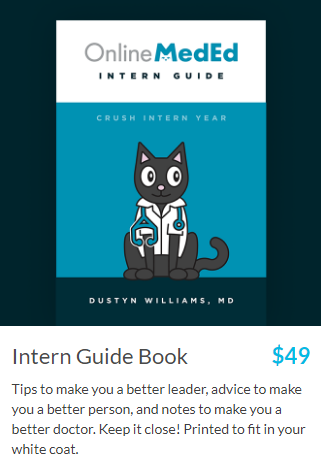
The OME Intern Guide Book 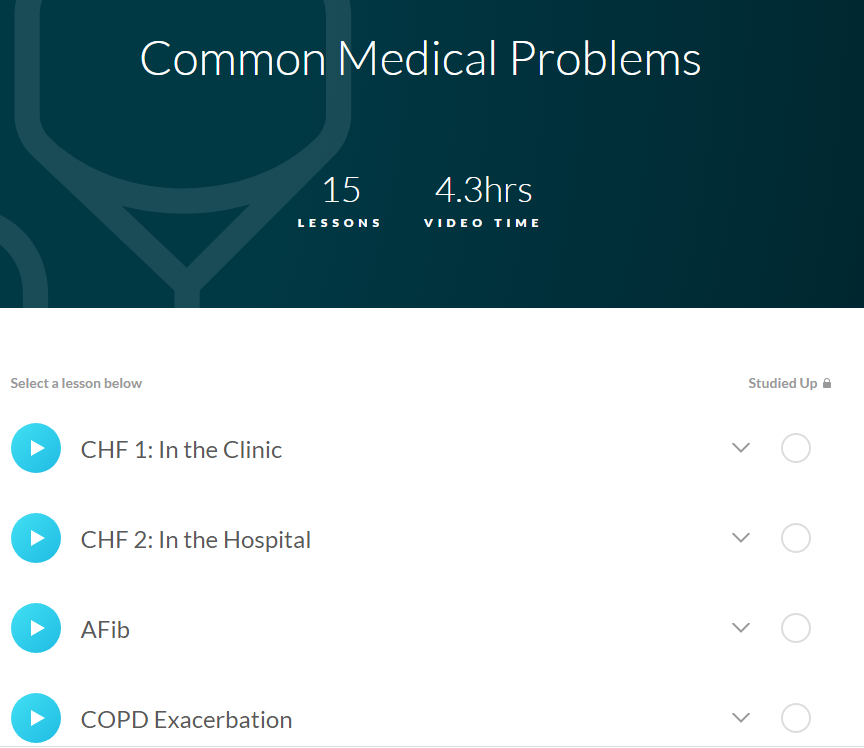
Common Medical Problems 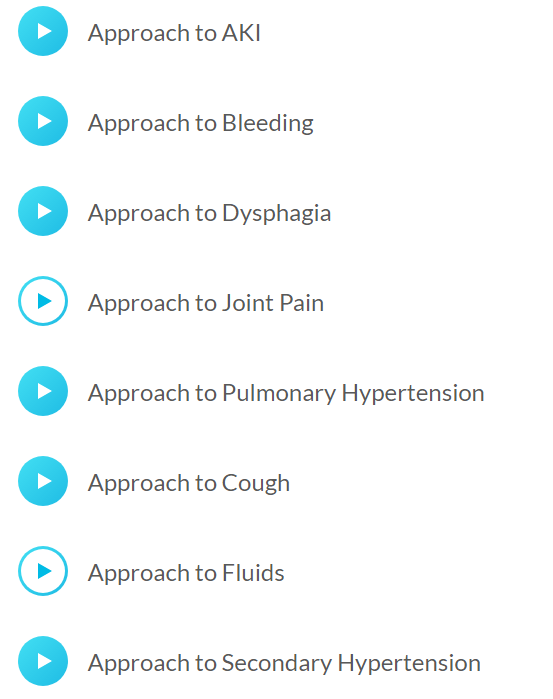
Methods / Approaches to Common Symptoms 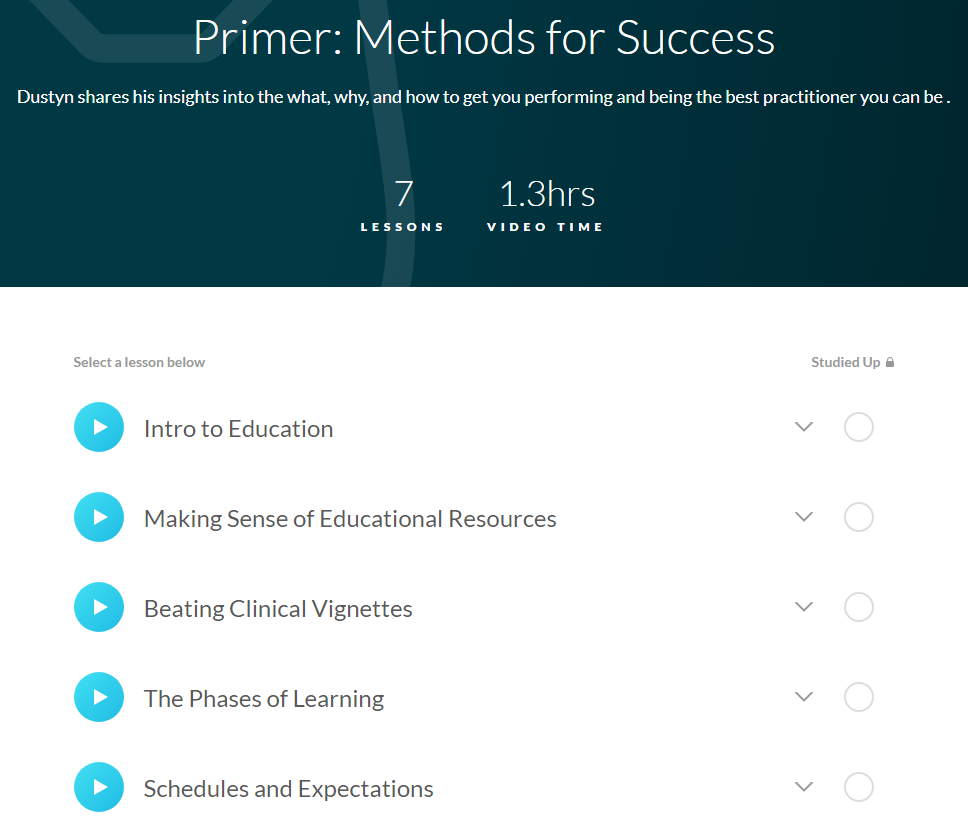
Primer / Methods for Success 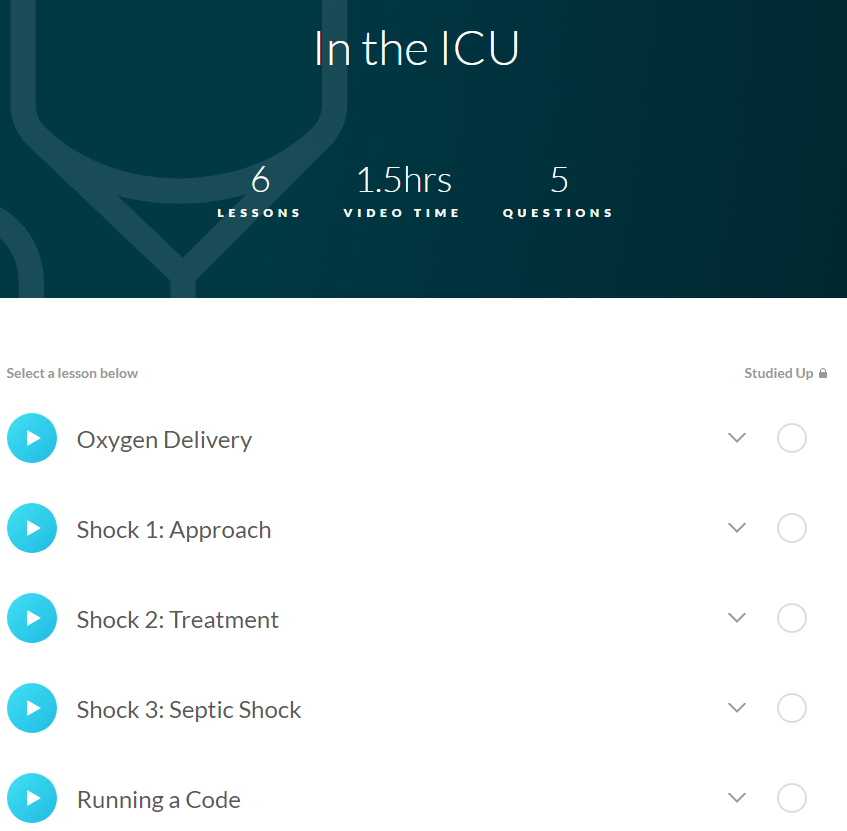
In the ICU
Update 4/10/2020:
OnlineMedEd has put together a FREE 48 lesson “Crash Course in Medicine” intended for early graduating fourth year med students, and non-medicine residents heading back to the wards or ICU.
ALiEM: Bridge to EM
This one I’ve never used, but considering the number of NY med students just graduated early and about to be shoved into ED’s and ICU’s without prep the timing is fantastic. This is an 8 week course, and I realize some of you may be starting in April, but it’s a heck of a lot better than nothing. ALiEM is well known in the #FOAM and #MedEd world, and the eight week bridge course resources are FREE, except for the heavily featured EMRAP content which is $195 a year for residents AND SHOULD BE COVERED BY YOUR RESIDENCY. And not as CME, they should just freaking pay for it, if they’re gonna shove you in an ED during a pandemic.
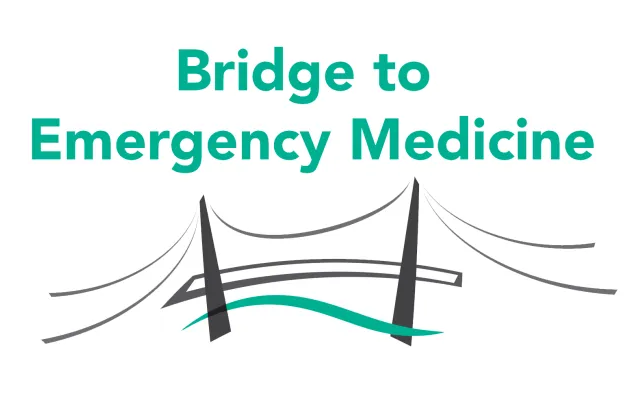
ALiEM Bridge to EM 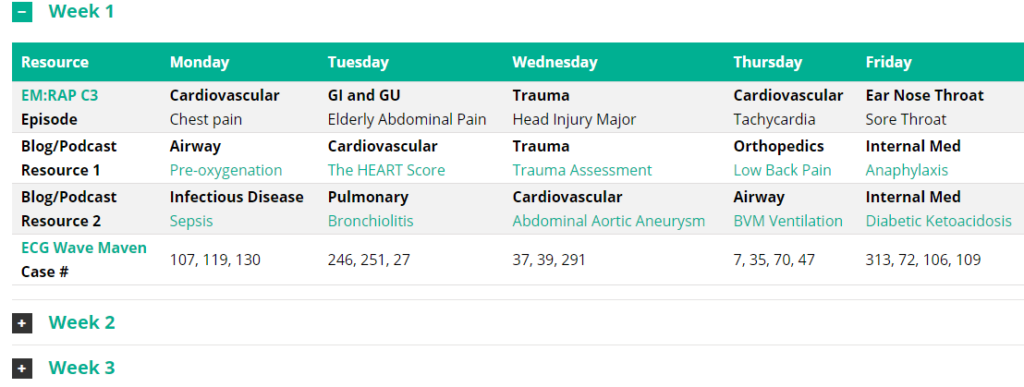
Week One of ALiEM 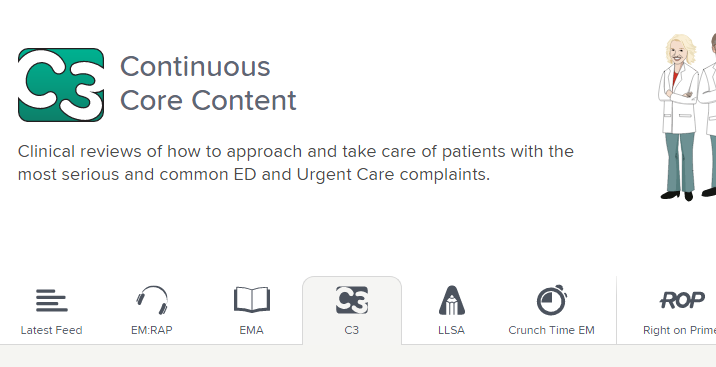
EmCrit isn’t free 
Wave-Maven free EKG 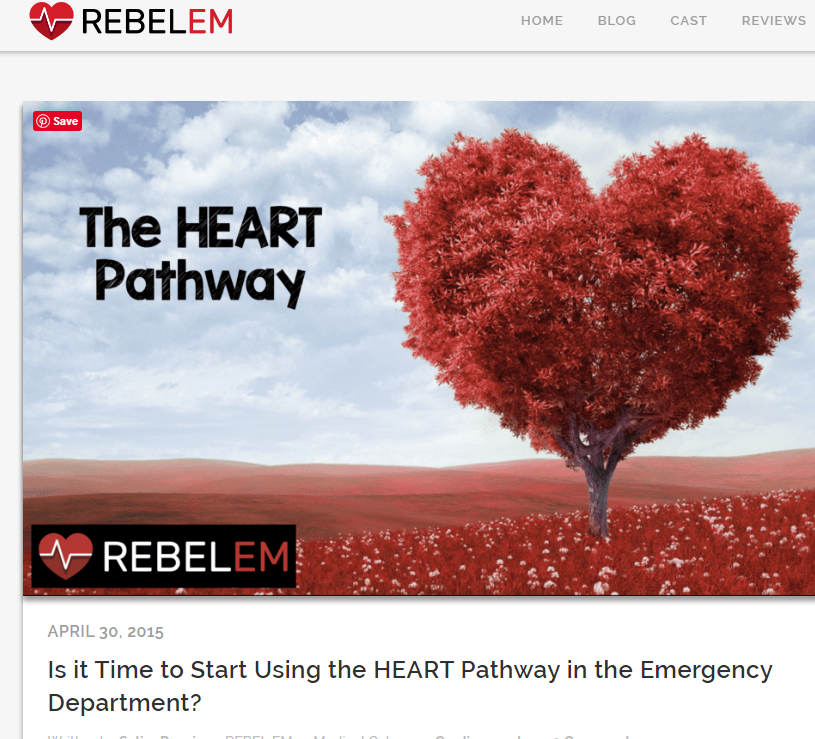
RebelEM #FOAM 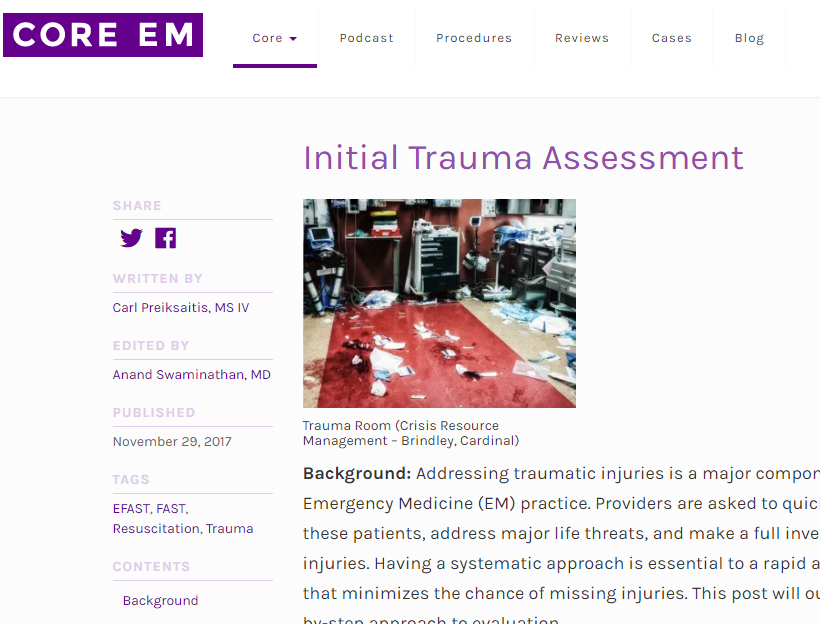
CoreEM #FOAM 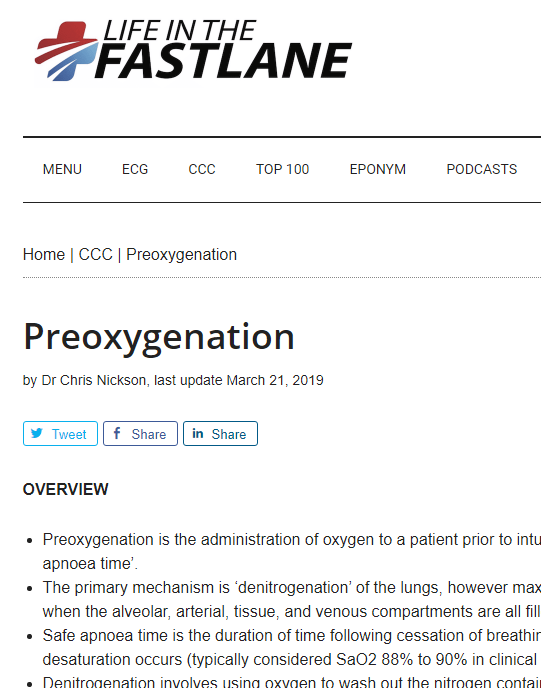
Life in the Fast Lane #FOAM
Update 4/9/2020:
Medical students can get a student subscription to EMRA for $60 and have access to EM:RAP content for “free”. Which is WAY less than their default $195 fee.
This is not a lot of options, but none of this existed when I started residency, so having three options to begin with is pretty good. I’m sorry I couldn’t find any free resources for you, but tomorrow’s post will have a TON of tweetorials that I’ve bookmarked over the past year, and hope will be relevant.
I’m also working on the long-ago promised variety of intern year posts, instead of reading the news. Even if you’re not a family medicine resident you are likely to be doing rotations that will require knowledge outside of your wheelhouse in the time of COVID-19.

Want more intern content? See the tag Intern Tips and the Category for Resources.
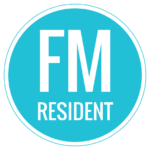
Pingback: How To: Read EKGs | FM|Resident.com